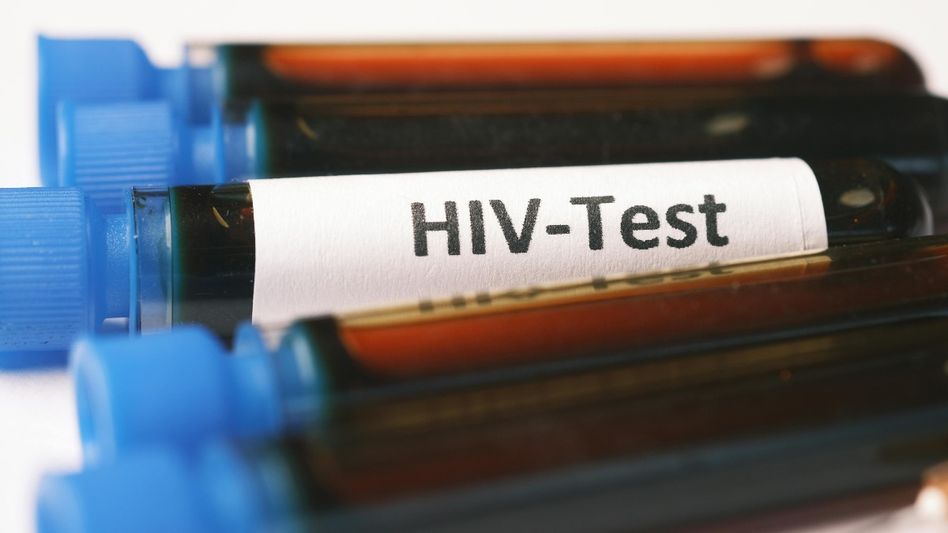Meghalaya couples may soon need HIV test before marriage
Meghalaya proposes mandatory HIV testing before marriage to tackle rising infections. The policy aims to encourage early detection and responsible behaviour among couples
 Representative Image
Representative ImageThe Meghalaya government is exploring legislation to make HIV/AIDS testing compulsory before marriage as the state grapples with a dramatic surge in infections that has positioned it among India's worst-affected regions.
Health Minister Ampareen Lyngdoh announced the proposal following a high-level meeting on July 24, where officials confronted alarming statistics showing HIV/AIDS cases have doubled in the East Khasi Hills district alone. The state now ranks sixth nationally in HIV/AIDS prevalence, with the northeastern region bearing a disproportionately high burden.
"If Goa has made testing compulsory, why shouldn't Meghalaya have its own set of laws? These laws would benefit the larger community," Lyngdoh said. "The state is mentally prepared to take strong actions."
Deputy Chief Minister Prestone Tynsong chaired the crucial meeting attended by Health Minister Lyngdoh, Social Welfare Minister Paul Lyngdoh, and eight legislators from East Khasi Hills district. The gathering resulted in a resolution directing the health department to prepare a cabinet note for a comprehensive HIV/AIDS policy implemented in mission mode.
The scale of the crisis became apparent as officials revealed East Khasi Hills district now records 3,432 HIV/AIDS cases, with only 1,581 patients receiving treatment. A concerning 681 patients have been lost to follow-up care, while 159 deaths have been attributed to interruptions in Antiretroviral Therapy (ART) treatment.
"We have spoken only about East Khasi Hills, and the number is very high. The highest in the state is unfortunately in the Jaintia Hills region, both West and East," Lyngdoh said, indicating the problem extends far beyond a single district.
The minister emphasised that while public awareness campaigns have succeeded, the real challenge lies in improving testing and screening capabilities. Current legal frameworks may limit aggressive testing protocols, prompting the government to consider new legislation similar to Goa's mandatory pre-marriage testing law.
Sexual transmission remains the primary mode of HIV/AIDS spread in Meghalaya, distinguishing it from other states where injecting drug use plays a larger role. However, officials acknowledge challenges in accurately identifying and testing all at-risk populations, suggesting actual infection rates may exceed current statistics.
"We must ensure that everyone who has been tested is brought into the treatment system. HIV/AIDS is not fatal if treated properly, just like cancer or TB," Lyngdoh stated, emphasising the importance of continuous care protocols.
The government plans to extend consultation meetings to the Garo Hills and Jaintia Hills regions, working with bureaucrats and medical professionals to develop area-specific strategies. Officials have committed to avoiding stigmatisation by refusing to release specific data about infection hotspots within individual constituencies.
The minister noted that injecting drug use is not yet a dominant factor in Meghalaya's HIV transmission patterns due to challenges in identifying users, unlike certain other states where needle-sharing represents a major component of the epidemic.
Lyngdoh expressed additional concern about undetected cases in communities, stating that despite the alarming official numbers, there could be more people who are not coming forward for testing. The state's current testing capabilities may not capture the full extent of infections within communities.
The comprehensive policy framework will address multiple aspects of the crisis, from prevention through mandatory testing to ensuring continuous treatment for all diagnosed patients. The health department will take primary responsibility for implementation, with legal experts examining the feasibility of compulsory pre-marriage testing legislation. (PTI)
Copyright©2025 Living Media India Limited. For reprint rights: Syndications Today









